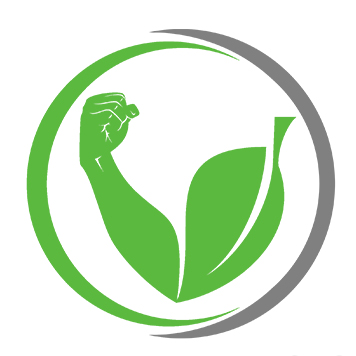
Dr. Christian Gonzalez Rated this Brand as one of the Best Vegan Proteins: Here's Why!
As more and more people decide to adopt a healthy and active lifestyle, protein powder sales have increased significantly over the decades. This wildly popular dietary supplement continues to see great success as consumers rely on it to lose weight, strengthen muscles, accelerate post-workout recovery, and enhance overall health. As it becomes a staple in many people’s diets, finding clean protein to consume daily is of utmost importance.
While protein powder may appear to have many promising effects, not every product is safe to consume. To ensure we get the most out of our supplements, we need to pay close attention to the protein powder ingredients listed on the label. Dr. Christian Gonzalez, a naturopathic doctor and host of the popular ‘Heal Thy Self’ podcast, recently reviewed 80+ plant-based protein powders currently on the market. In his podcast episode, he revealed the companies he investigated, and which were transparent about their product, shared third party testing information, and ranked as the best.

One approach he used to determine the validity of a brand is whether or not they offer a Certificate of Analysis, or COA. Such a document is produced by manufacturers to verify the product conforms to their customer’s requirements. It’s obviously important for customers to know that the product they’re receiving adheres to their specific parameters and targets and meets their needs. The price of not having COAs is quite high, and Christian found a number of companies that either didn’t have a COA, wouldn’t provide one at his request, or listed irrelevant information in them. Without these documents, companies could very likely lose money, customers, and credibility within the industry.
Another vital factor he investigated was heavy metal contamination. This particularly affects plant-based powders as their ingredients can be more susceptible to contaminants in the farming process versus animal-based protein powders like whey or casein (which have their own set of problems). Arsenic, cadmium, mercury, and lead are often found in powders across a wide variety of brands, and these toxins can bioaccumulate in the body. Christian pointed out that there is no safe level for these compounds in our bodies, and studies show that chronic exposure to these elements can wreak havoc over time.
After thorough research and analysis, Dr. Gonzalez announced his top protein powder. Of the 80+ products considered, Vedge Plant Protein was the top rated protein. "They are super transparent with third party testing. They sent me all of the testing and I looked at every single number and it looked really good. Really impressive profile with USDA Organic. They tested for glyphosate, heavy metals, and it looked very good. This is actually the protein I keep in my home."
Our main priority at Vedge is ingredient quality and functionality. We test each ingredient before it even enters our formula during the research and development process, then test our approved formula in-house. After that, we send the final product out for 3rd-party testing to confirm our results and complete a three-way check.
Centered around USDA certified organic peas, organic pumpkin seeds and organic sunflower seeds, Vedge Plant Protein provides a complete amino acid profile without GMOs, artificial flavors, artificial dyes or colors, unnecessary flow agents or fillers. We test against microbes, pathogens, heavy metals, glyphosate, pesticides, and herbicides to ensure the cleanest product reaches our end consumer. Compared to whey or casein protein powders, a vegan solution eliminates allergy symptoms and lactose intolerances, and also promotes environmental stability and ethical treatment of animals.
Subscribe to see more!
Love this content?
Receive our awesome newsletter straight to your Inbox!


 Your email address will always stay private.
Your email address will always stay private.
